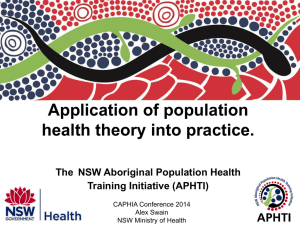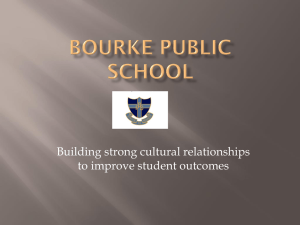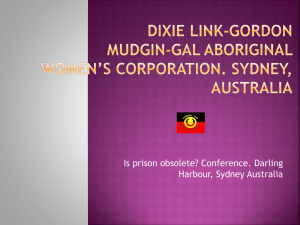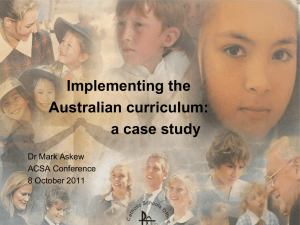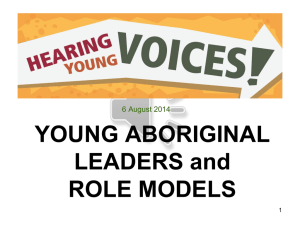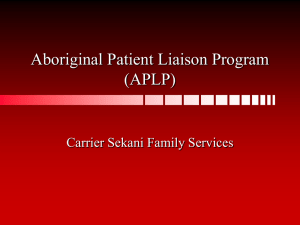PowerPoint - Australian Curriculum Studies Association
advertisement
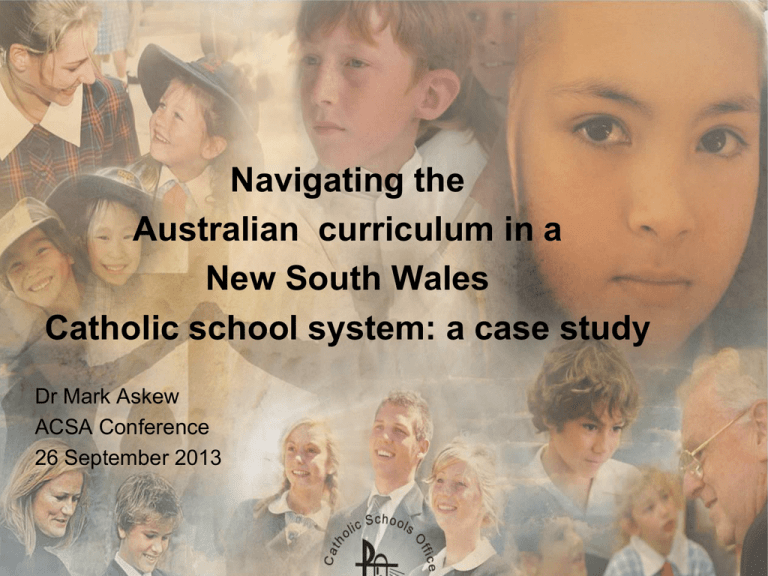
Navigating the Australian curriculum in a New South Wales Catholic school system: a case study Dr Mark Askew ACSA Conference 26 September 2013 Broken Bay context • A Catholic school system of almost 50 schools • A school system of considerable diversity: socioeconomic; multicultural; Indigenous • A well articulated values base: the Catholic Worldview • Professional learning focus on Quality Teaching Framework (Newcastle) and Leading Learning (Auckland) Implementing the Australian curriculum in the context of • The Broken Bay Catholic Worldview • NSW Board of Studies syllabuses Mary MacKillop’s Australian Curriculum First Australian Curriculum: St Cecilia’s Wyong. NSW Board of Studies • Broken Bay is a registered school system under the 1990 NSW Education Act • In NSW teaching programs must be based on NSW Board of Studies syllabuses • NSW syllabuses are being developed for the Australian curriculum • In NSW the K-10 syllabuses in English, Maths, Science and History will not be required to be taught until 2014 Role of the Board of Studies • • NSW has joined with the Australian Government and all other states and territories in a joint endeavour to develop an Australian curriculum. The Board of Studies NSW is responsible for advising the NSW Minister for Education on the appropriateness of curriculum for NSW schools and the structure and process of its implementation, including with regard to the Australian curriculum. Implementation of the Australian curriculum is the responsibility of states and territories. NSW will implement the Australian curriculum through new syllabuses. The Board of Studies will provide notification and information about changes to NSW syllabuses as they are approved by the NSW Minister for Education. In NSW the cross-curriculum priorities are: Aboriginal and Torres Strait Islander histories and cultures Asia and Australia's engagement with Asia Sustainability The general capabilities are: Critical and creative thinking Ethical understanding Information and communication technology capability Intercultural understanding Literacy Numeracy Personal and social capability Other important learning identified by the Board of Studies: Civics and citizenship Difference and diversity Work and enterprise A Catholic Worldview Jesus as God’s son: life, death and resurrection Create social conditions which respect human dignity Love others as Jesus loves us The dignity and uniqueness of the human person – made in God’s image God as Trinity – a communion of persons The Catholic Worldview is a comprehensive perception of the universe, revealed to us in Jesus, that provides insights into the meaning of life and how to live it. The Catholic Worldview is experiencing life through the eyes of our Catholic faith. The Cross of Jesus – trust and confidence The Spirit in the world: inviting and empowering people God’s love for us and our response as disciples The Church – a communion of disciples God’s presence: life, Eucharist, scripture and Church tradition The Quality teaching Framework Three dimensions: •Intellectual Quality •Quality Learning Environemnt •Significance Leading Learning initiative: • With the University of Auckland’s Centre for Educational Leadership (UACEL) for two years. • Professor Helen Timperley: focus on the importance of leading teacher professional learning. • Teacher Inquiry and Knowledge Building Cycle and Practice Analysis Conversation: improving teacher learning and practice to improve student outcomes. • A collaborative process with school leadership teams to achieve the goals through School Improvement Plans. • Focus on communication skills, data analysis and goal setting to improve learning outcomes. Understanding by Design • “Backwards design” steps: • Design appropriate learning outcomes/goals • Identify exactly what achieving the outcomes might look like ... the evidence/assessment • Plan learning experiences to help students get there ACARA Curriculum Model Learning area knowledge and skills General capabilities Perspectives/Priorities In the context of: • Catholic Worldview • NSW Board of Studies • Quality Teaching Framework • Leading Learning • Understanding by Design approach Current situation ... 2013 Familiarisation and planning 2014 English and Mathematics 2015 Science (and Technology) 2016 History • During 2013: • Leaders forum (Profs Geoff Masters and Jenny Gore) • Syllabus analysis for Leaders • Custer based staff development days • In school support from Education Officers • Secondary Curriculum weebly.http://dbbaustraliancurri culumsupport.weebly.com/inde x.html Aboriginal and Torres Strait Islander histories and cultures •Increasing enrolments of Aboriginal students •Strong learning outcomes •Increasing engagement of school leaders and communities with Aboriginal cultures •Growing team of AEWs 1. Support for students in their learning Support Literacy and Numeracy in partnership with the classroom teacher to improve the outcomes for Aboriginal students. 2. Work as part of a school team to support student’s cultural identity Support the cultural identity of Aboriginal students in secondary and primary. Recognise and acknowledge student achievements. 3. Develop Community Partnerships Develop partnerships with parents of Aboriginal students to ensure that meaningful relationships are established which facilitate improved educational and cultural outcomes for students. 4. Working with teachers Assisting teachers in the classroom to support Aboriginal students in all school and class activities and to involve parents and the community in school programs Accepting responsibility and accountability for the education and inclusion of Aboriginal students and their families • Educating all students Aboriginal people, cultural their cultures, Strengthening studentsabout cultural identity through campsspirituality, and programs history and experiences • Acknowledging and valuing local Aboriginal people and their cultures Supporting teachers pedagogy and Leading Learning • Schools working towards the achievement of reconciliation AEWs having a higher profile within the schools • Schools acknowledging country, flying the flag, celebrating significant events Accepting responsibility and accountability for the education and inclusion of Aboriginal studentsfrom andthe their families The Apology Federal Government • Strengthening students cultural identity through cultural camps andchildren Aboriginal Community has confidence with DBB educating their programs hy the increase in the number of Aboriginal students • Acknowledging and valuing local Aboriginal people andand theirprograms cultures tudents cultural identity through cultural camps • Schools working towards the achievement of reconciliation Acknowledging and valuing local Aboriginal people and their cultures • Schools acknowledging the flag, celebrating significant Schools workingcountry, towardsflying the achievement of reconciliation events • Schools acknowledging country, flying the flag, celebrating significant events The Apology from the Federal Government • The Apology from the Federal Government Aboriginal Community has confidence with DBB educating their children Aboriginal Community has confidence with DBB educating their children the increase in the number of Aboriginal students The cultural integrity test: • The self esteem of the Aboriginal learner • Pre/post colonial history • Reconciliation agenda • Prof Peter Buckskin ACSA Conference 25 Sept 2013 Asia and Australia’s engagement with Asia: Languages (almost 50% primary schools teach an Asian language) o Languages challenges: teacher supply teacher expertise continuity student engagement student success Sustainability ancient tradition from Genesis and Catholic Worldview creation spirituality school based initiatives http://www.catholicearthcare.org.au/index.html Future plans and challenges • Focus on the disciplines • Possibilities of on line resources • Risk of continuing as usual (Keep calm and carry on) • Implementing the Australian curriculum as a Catholic system in NSW
